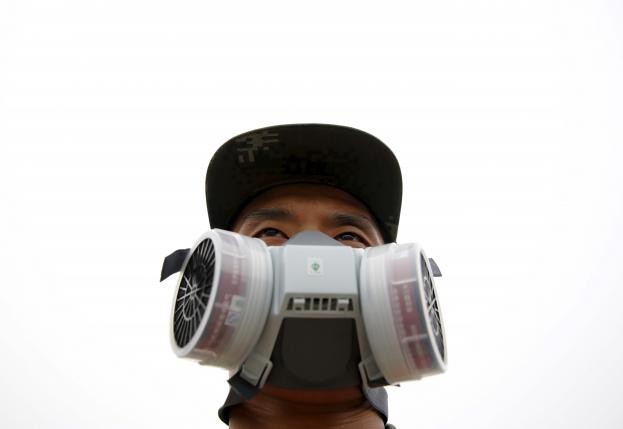China’s anti-corruption watchdog said on Tuesday that it is probing the country’s top work safety regulator for allegedly allowing companies to operate without a license to handle hazardous chemicals, as the government scrambles to dispel public concerns over transparency in the investigation of the Tianjin explosions that left 117 people dead and 700 wounded.
Yang Dongliang, head of the State Administration of Work Safety (SAWS), is "currently undergoing investigation" for suspected violations of party discipline and the law, the Central Commission for Discipline Inspection (CCDI) said in a statement on its website.
The 61-year-old Yang, who was earlier seen on Sunday accompanying Premier Li Keqiang to the blast site, was appointed as SAWS head in May 2012 and was previously an official and vice mayor of Tianjin in 1996 and 2001, respectively, according to the CCDI website.
CCDI did not say whether the investigations were connected to the explosions in the northeastern port city of Tianjin, although the company that operated the chemical warehouse that was the source of the blasts did not have a license to work with dangerous chemicals for over a year, the Reuters News Agency said in a report on Tuesday.
In a report by the Global Times published on Wednesday, Yang allegedly signed a policy in 2012 allowing companies with a port operations license to store hazardous chemicals without special certification.
Tianjin Dongjiang Port Ruihai International Logistics, the company that owns the portside warehouse that is reportedly the source of the explosions on Aug. 12, was alleged not to have proper unauthorization to store hazardous chemicals but was nevertheless allowed to do so under the policy, the report said.
As of Tuesday, more than 10 executives of Ruihai International Logistics have been detained, including board director Yu Xuewei and deputy director Dong Shexuan, the son of the former head of Tianjin's port security, according to the Tianjin Daily.
Ruihai International Logistics was unable to be reached since Thursday, but one of its workers defended its operations.
"This was purely an accident," Zhang Baoyan, a worker who claimed to be responsible for storing and handling, told Reuters at the scene of the blast. "The usual management is good and the systems are clear and orderly."
The announcement from CCDI came a day after a commentary from the People's Daily, the official newspaper of China's Communist Party (CPC), called for a thorough investigation of the tragedy.
"Facing an incident of such great magnitude, the central authorities' stance is clear and resolute, which is to thoroughly probe [the cause of the explosions]," the commentary read, noting that previous investigations on top Chinese officials charged with corruption were handled in "a thorough and public fashion."
"Why would it conceal the truth of a safety incident or protect officials?" it added.
City prosecutors said on Tuesday that they have filed bribery charges against two other officials from Tianjin's Binhai New Area, where the port is located.
The CPC State Council has also established a team to investigate the cause of the explosions and "file a thorough report" to the CPC and the people, according to a statement issued by the State Council on Tuesday.
"The CCDI's and State Council's involvement directly addresses public concerns that the truth might be concealed if the investigation is conducted by the person or organization under question," said Hu Xingdou, a political science professor at the Beijing Institute of Technology.
"It will also prevent interference from various government branches, given the complicated structure of the port management," he added.



























